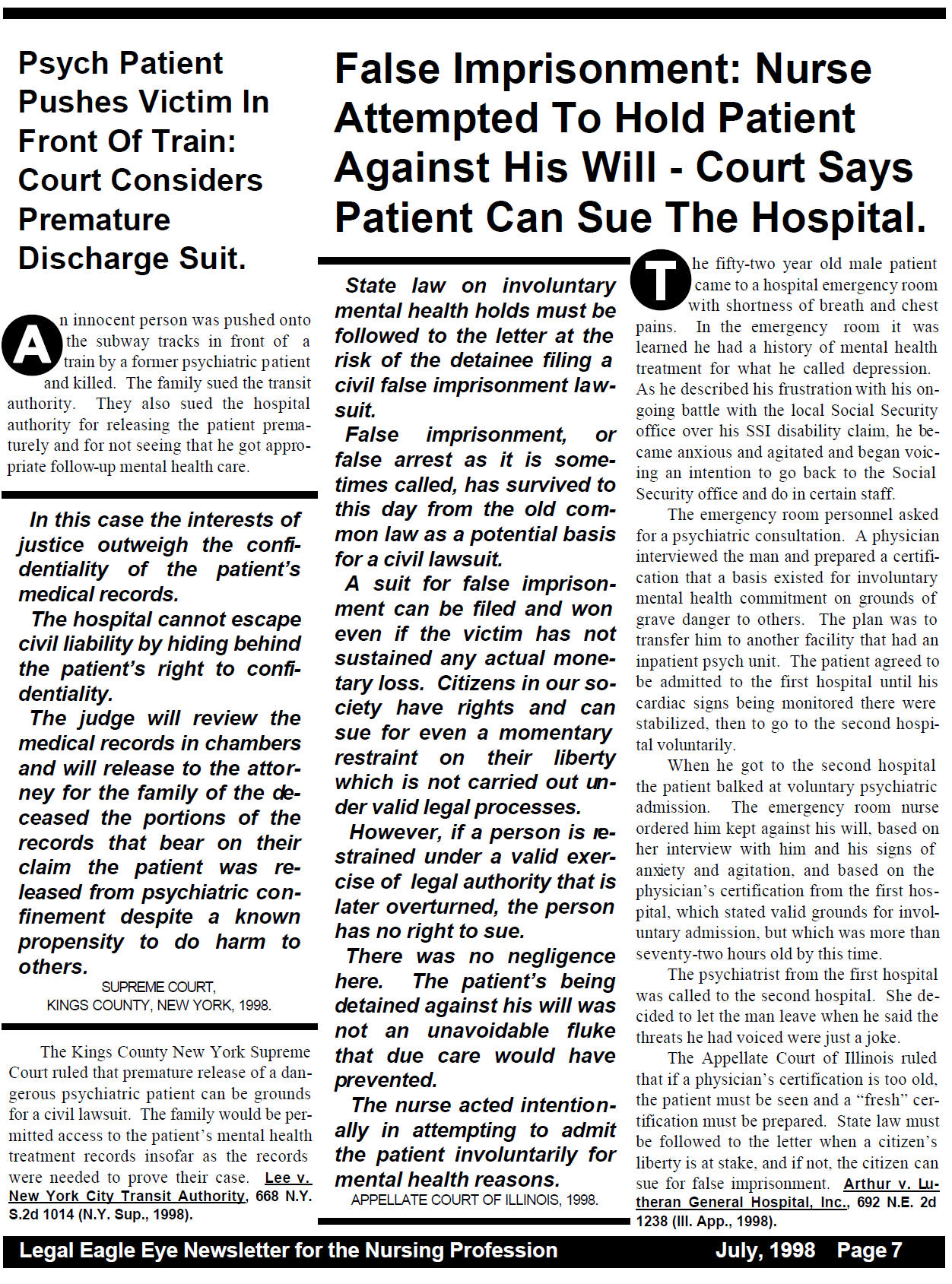
|
Legal Eagle Eye Newsletter for the Nursing Profession Home Page New Subscriptions I About Our Newsletter I Sample Newsletter I FAQ |

Quick Summary: The law on involuntary mental health holds must be followed to the letter at the risk of the patient filing a civil false imprisonment lawsuit.
False imprisonment, or false arrest as it is sometimes called, has survived to this day from the old common law as a potential basis for a civil lawsuit.
A suit for false imprisonment can be filed and won even if the victim has not sustained any actual monetary loss. Citizens in our society have rights and can sue for even a momentary restraint on their liberty which is not carried out under valid legal processes.
However, if a person is restrained under a valid exercise of legal authority that is later overturned, the person has no right to sue.
There was no negligence here. The patient's being detained against his will was not an unavoidable fluke that due care would have prevented.
The nurse acted intentionally in attempting to admit the patient involuntarily for mental health reasons. APPELLATE COURT OF ILLINOIS, 1998.
The fifty-two year old male patient came to a hospital emergency room with shortness of breath and chest pains. In the emergency room it was learned he had a history of mental health treatment for what he called depression. As he described his frustration with his on-going battle with the local Social Security office over his SSI disability claim, he became anxious and agitated and began voicing an intention to go back to the Social Security office and do in certain staff.The emergency room personnel asked for a psychiatric consultation. A physician interviewed the man and prepared a certification that a basis existed for involuntary mental health commitment on grounds of grave danger to others. The plan was to transfer him to another facility that had an inpatient psych unit. The patient agreed to be admitted to the first hospital until his cardiac signs being monitored there were stabilized, then to go to the second hospital voluntarily.
When he got to the second hospital the patient balked at voluntary psychiatric admission. The emergency room nurse ordered him kept against his will, based on her interview with him and his signs of anxiety and agitation, and based on the physician's certification from the first hospital, which stated valid grounds for involuntary admission, but which was more than seventy-two hours old by this time.
The psychiatrist from the first hospital was called to the second hospital. She decided to let the man leave when he said the threats he had voiced were just a joke.
The Appellate Court of Illinois ruled that if a physician's certification is too old, the patient must be seen and a fresh certification must be prepared. State law must be followed to the letter when a citizen's liberty is at stake, and if not, the citizen can sue for false imprisonment. Arthur v. Hospital, 692 N.E. 2d 1238 (Ill. App., 1998).